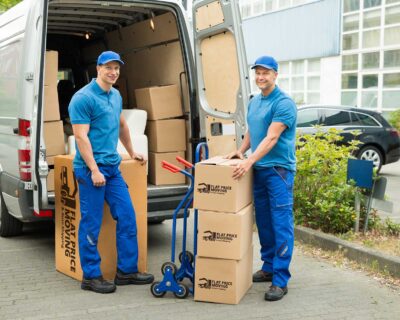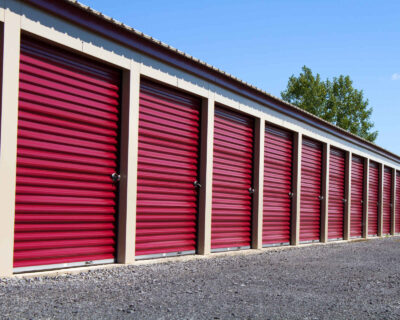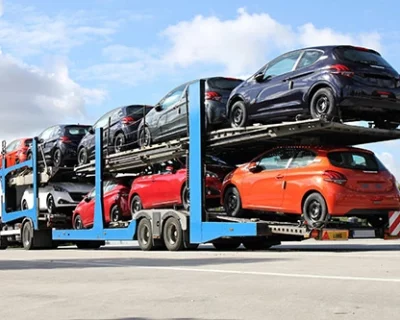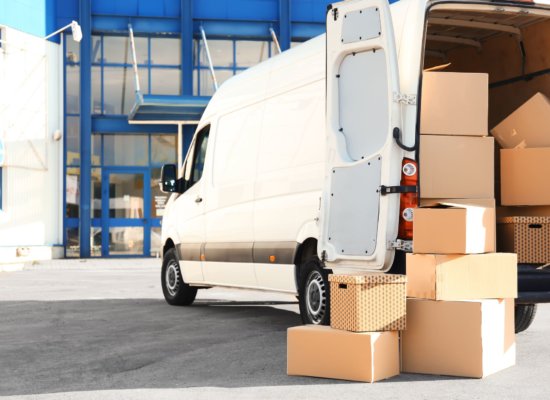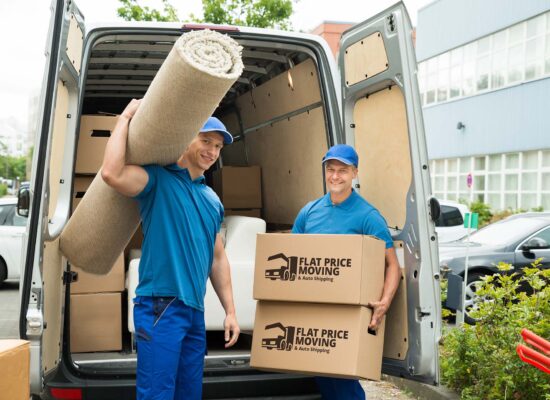What Not to Pack When Moving – A Short Guide
If you’ve ever moved and fallen into the trap of overpacking, then you’re familiar with the importance of proper organization. That experience probably frustrated you, particularly if you’re short on packing supplies. But, believe it or not, it’s not the worst part of it. Much worse is the task of handling everything without knowing what not to pack when moving.

In case you’re planning to move soon, you should know what items to bring and what could be a surplus or even unwanted cargo for long-distance movers. Besides, it’s not just a matter of your additional expenses or more lifting and loading tasks for a professional crew – some things are dangerous for transportation and belong on a list of forbidden items.
Thanks to Flat Price Auto Transport and Moving guide, you have a chance to find out what is essential when relocating and what should be left behind. Be prepared and take the necessary steps for your stress-free moving experience.

It’s Important to Know What Not to Pack When Cross-Country Moving
If you’ve decided to move, you might think the best and the most cost-efficient option is to turn it into a DIY project. That could be the cheapest way, but not so reliable, safe, or efficient.
What does that mean? While packing, you might disregard or forget about cautionary measures. You may pack some unnecessary things that can cause considerable damage if not protected and wrapped correctly. Thanks to professional movers and their packing services, these risky situations are reduced to a minimum. So, before you jump into sorting and packaging your home inventory, make sure you are familiar with the list of objects your moving and car shipping company is not allowed (by law) to take on their cargo truck.

Items You Can’t Pack – Including Foods
If you’ve already created your items checklist or a complete inventory of your belongings, you should put aside several piles of undesirable objects you want to get rid of. There is a certain number of basic categories to consider, but some removal companies have stricter precautionary measures than others. To know beforehand what to keep in your boxes, you should contact movers and ask for details. You’d be surprised by certain things that the long-distance moving company won’t move, such as nail polish and remover and several types of household cleaners. Anyway, the safest way is always to consult your carrier.
The First Security Step – Flammables, Gases, and Poisons
There are plenty of cleaning chemicals and compressed gases in every household that are commonly used in daily housework tasks. These are not dangerous if appropriately stored in your garage or under the sink, but when it comes to transporting them across state borders, they can’t be moved by professional companies. The safest way is to dispose of them securely or take them with you in your own vehicle. Some of the most common flammable items and hazardous materials that are forbidden to transfer long-distance are:
- Flammables and combustibles (ammonia, batteries, fireworks, gasoline and kerosene, matches, motor oil, nail polish, etc.),
- Compressed gases and poisons (aerosol sprays, insecticides or pesticides, gardening chemicals, oxygen tanks, etc.).
Get Rid of Perishables
Several weeks before your relocation, you should stop buying fresh food and start emptying your fridge and consuming groceries. That’s how you will reduce your food supplies and won’t fall into the trap of packing all sorts of perishables. On the other hand, some companies allow storing canned food with a regular expiration date, but that depends on your mover’s policies and procedures. To avoid guesswork, talk to your carrier and ensure peace of mind when the relocation day comes.
Instead of letting your perishable and non-perishable food go to waste, consider donating it to local charities, shelters, or food banks. Many organizations accept unopened, non-perishable items like canned goods, rice, and pasta. It’s a simple way to reduce waste and support those in need while lightening your load on the moving day.
In the United States, food insecurity remains a significant issue affecting millions of people. Currently, 47 million individuals, including 14 million children, struggle to access enough food. In 2022 alone, 49 million people relied on food assistance programs to meet their nutritional needs. Alarmingly, every county in the country is impacted by food insecurity. Donations play a crucial role in supporting these vulnerable populations, helping to provide essential meals to those in need.
Plants, Flowers, and Pets
Since your botanical friends are live organisms, just like your pet, they can’t be packed into your mover’s truck with all other household goods. Without fresh air, sun, and water, they will hardly survive a long-distance move. That being said, you could donate unwanted items such as live plants or give them to your family and friends. If you, however, possess some vegetation of sentimental value, then it’s feasible to carry it across the country – but in your car. It’s a perfect place for your flora since you can monitor it and provide complete care in a temperature-controlled atmosphere.
But, before placing your cherished plant into your vehicle, consider specific laws and regulations concerning plant imports. Some vegetation may carry insects, pests, or diseases that may be viewed as a threat to another state, its residents, and vegetation. Therefore, check out your destination country’s or state’s specific policies before deciding what plant to take with you and what to leave behind.

Things You Shouldn’t Pack on a Moving Truck
Besides the things that long-distance movers won’t move, some other items are best transported in your vehicle. These categories are reserved for essential stuff that movers usually refuse to handle to avoid liability due to possible damage or loss.
Don’t Leave Valuables Lying Everywhere
Personal belongings are something that you might use daily, and you probably wouldn’t feel too comfortable leaving your money, jewelry, or heirlooms buried somewhere in the truck bed. Here’s a list of valuable and sentimental belongings that you should keep at hand:
- Prescription medications,
- Valuable collections,
- Jewelry and furs,
- Money and payment cards,
- Insurance policies.
Moving Services
Whether you are moving from New York to Los Angeles or from San Francisco to Chicago, we can help you.
Read moreStorage Service
Knowing what kind of surprises cross country move may hold, we offer 30 day free storage for belongings at the origin state.
Read moreAuto-Transport
If your first concern is having your vehicle transported safely and efficiently, enclose shipping is the way to go.
Read moreImportant Papers Related to Moving
When relocating across state borders, you should definitely have important papers near you, such as passports and photo IDs, the bill of lading, car titles, and housing documents. Documents from your healthcare provider are also something related to your privacy issues, and you shouldn’t lose sight of them. Packing everything relevant to your move and any other specific requirements can save you from additional worries.
The Open-First Box of Essentials
A box with all the necessary items during your move and after settling in is a must. You should ask yourself what equipment you may need in case you are camping outside your home. Everything that pops up in your mind is something you should put here. This box, therefore, should include the following:
- Toilet paper and hand soap,
- Cleaning supplies,
- Basic tools,
- Shower supplies,
- Personal care items,
- Snacks and utensils,
- Basic bedding,
- A change of clothes,
- Hot beverage supplies,
- Charger, cable, and battery.

Request a Free Quote From a Moving and Auto Transport Company
It’s needless to say all the nuances related to DIY packing are not applicable when planning to move with professional cross-country movers. That’s why you should take into consideration the option of scheduling free in-home estimates and investing in long-distance moving services. Even if you intend to handle the entire move by yourself, inviting a mover into your home and asking for a quote could help you learn what items could and should be packed and what not to pack when preparing to move to your new apartment.
Flat Price Auto Transport and Moving offers expert advice and reliable services for long-distance moves. Contact us now to schedule a free in-home estimate and make your relocation easier than ever!


